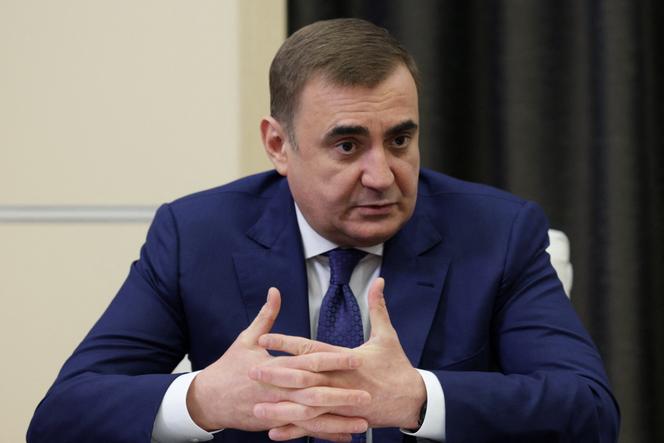


To coordinate its troops in the Kursk region, 10 days after the start of the Ukrainian army's surprise attack on Russia, which began on August 6, the Kremlin has chosen one of its most loyal men: Alexei Dyumin, who will turn 52 at the end of the month. Among the siloviki, members of the security forces who have taken over in Moscow during Vladimir Putin's near quarter-century of rule, the former bodyguard, later promoted to lieutenant-general, has enjoyed one of the most surprising rises of the last 10 years.
His appointment has not been made official. But this pure product of the Russian security services, a graduate of a military engineering college with a reputation for cold efficiency and unfailing loyalty, is there to provide reassurance to the president in the face of a military high command towards which the Kremlin has always maintained a certain mistrust. After the army's failures in Russia's border zones, this Kursk native appeared to be the right man for the job.
The past of this loyal man with an imposing physique and frank gaze speaks for itself. In 2014, as deputy head of the GRU (the military intelligence directorate), Dyumin played a key role in the evacuation of pro-Russian Ukrainian president Viktor Yanukovych, and then in the annexation of Crimea. Subsequently appointed Chief of the General Staff of the Land Forces, he briefly served as Deputy Defense Minister at the end of 2015, before making a more political shift, as desired by the Kremlin: the following year, Dyumin became Governor of the Tula region, specialized in weapons production, some 200 kilometers south of Moscow. He then took great pleasure in keeping up the rumor mill, being regularly mentioned as a possible successor to Putin.
After his re-election in March, the Kremlin's chief brought him back to Moscow, appointing him Secretary of the State Council, an unimportant advisory body headed by the president. A vaguely delineated "adviser" post was given to this intriguing figure of the praetorian guard. Now Dyumin finds himself up close with the Kremlin's powerful machinery.
Russian media, including Telegram channels specializing in military affairs, have been quick to decipher his unexpected presence on Monday, August 12, at a strategic meeting with Putin. This was partly televised, and aimed at putting together a response to the first foreign military incursion on Russian soil since 1945. The former governor was the only non-government participant with no official military ties.
You have 52.87% of this article left to read. The rest is for subscribers only.
